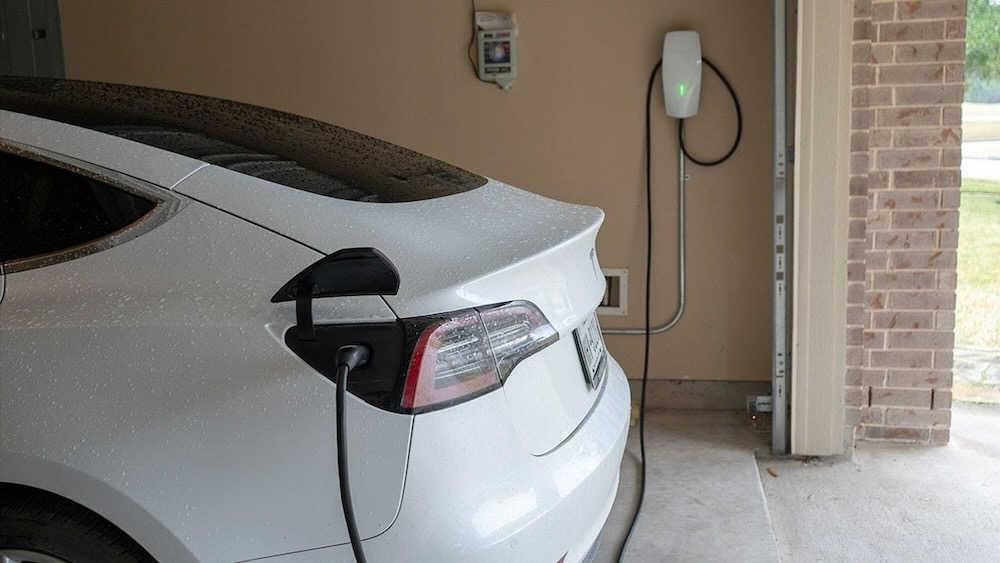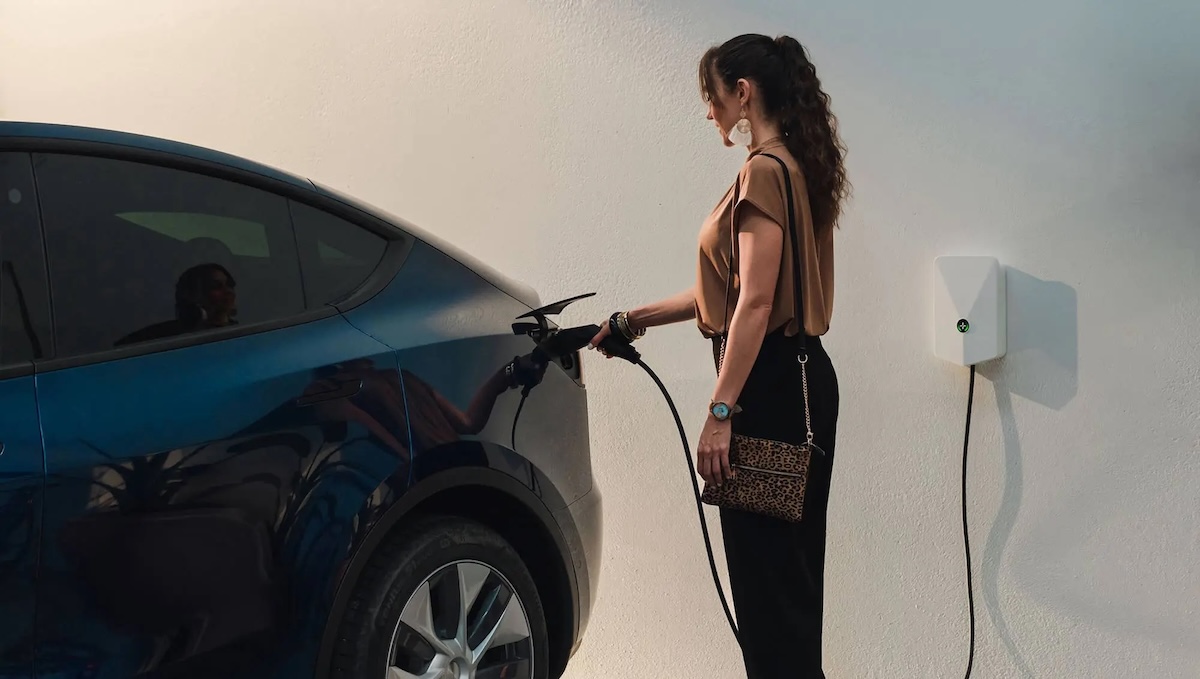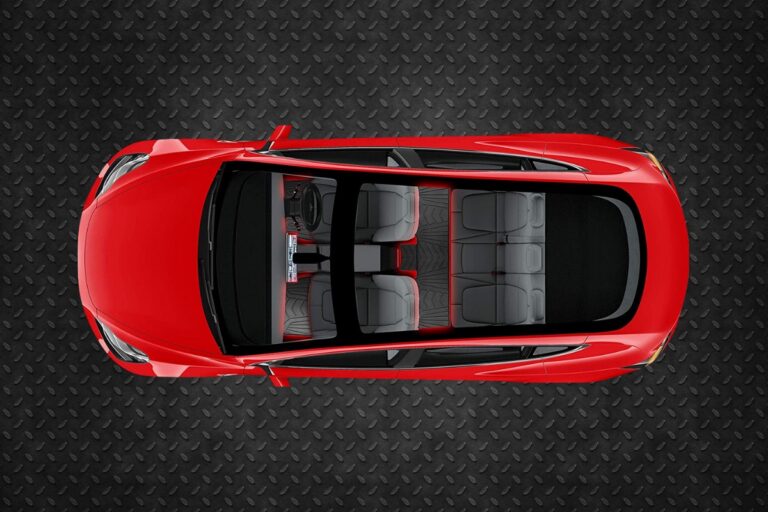EV Charger Installation Guide: Prepare Your Garage for Electric Vehicle Charging
Prepping your garage isn’t just about clearing out space. It involves considering factors like electrical capacity, wiring, safety, and even future upgrades. A well-prepared installation ensures optimal charging performance, safety, and convenience, making your EV ownership experience even more enjoyable.
Common Garage Prep Challenges (and How to Overcome Them)
While the excitement of getting a home charger is understandable, many new EV owners encounter some common challenges when preparing their garages. These include:
- Space Constraints: How much room is needed to install a dedicated EV charger in your garage?
- Electrical Capacity: Can your electrical panel handle the extra load from charging your EV charger?
- Charger Placement: Where is the best spot to mount the charger for easy charging?
- WiFi Connectivity: Does your garage have wifi coverage for charger and EV connectivity?
- Safety Considerations: Ensuring a safe installation and charging environment is paramount.
This guide is here to help you navigate these challenges and ensure your garage is perfectly equipped for your new EV charger. We’ll cover everything from assessing your garage space and electrical system to understanding the different types of wiring and outlets, as well as essential safety tips.
So, let’s dive in and ensure your garage is ready to welcome your EV charger with open arms!
Overcoming Space Constraints: EV Charging in Your Garage
One of the most common concerns about owning an electric vehicle (EV) is whether you’ll have enough space in your garage for charging. However, space constraints are rarely an issue with modern EV chargers.
Compact and Wall-Mounted Design:
EV chargers are designed to be as unobtrusive as possible. Most residential chargers are compact, wall-mounted units that take up minimal space on your garage wall. They’re not much larger than a breadbox, leaving ample room for storage or other garage essentials.
Standard Parking Gaps Are Enough
You don’t need to worry about elaborate parking maneuvers or sacrificing storage space to accommodate EV charging. The charging cable that comes with your EV is typically long enough to reach the charger comfortably, even with standard parking gaps between vehicles. You can easily park your EV as you normally would and plug it in without any hassle.

Additional Tips for Tight Spaces
If you have a particularly tight garage, consider a few extra tips to maximise space:
- Cable Management: Some chargers have built-in cable management features that keep the cord organised and out of the way when not in use.
- Corner Placement: Install the charger in a corner to free up the garage’s main area wall space.
- Ceiling-Mounted Cable Retractors: In extreme cases, you can install a ceiling-mounted cable retractor to keep the charging cable neatly tucked away when not needed.

Electrical Capacity Considerations for Your EV Charger
Understanding your home’s electrical capacity is crucial when getting an EV charger for your garage. It directly impacts the charging speed and overall convenience of owning an electric vehicle.
New Home Construction
If you are building a new home, upgrading to a 3-phase power supply is highly recommended. This will allow for 11kW charging, the maximum for many new EVs. It ensures your charging experience is as efficient as possible, minimising the time your vehicle spends plugged in.
Additionally, have your builder run a 3-phase 6mm cable from the switchboard to your designated charger location. Even if you don’t plan on installing the charger right away, this preemptive step will make future installation much easier and cost-effective.
Existing Homes
Upgrading to 3-phase power might be possible for existing homes, depending on your electrical infrastructure and utility provider. If 3-phase isn’t feasible, consider upgrading your single-phase supply to 63 amps, which can still offer substantial charging speeds.
If no upgrades are possible, your charging power will be determined by load capacity calculations of your existing configuration. These calculations assess your home’s electrical load to determine the safe and available power for EV charging.
Free EV Charger Assessment
We understand that navigating electrical systems can be overwhelming. That’s why we offer a free assessment to evaluate your home’s electrical capacity and provide personalised recommendations for your EV charger installation. Contact us today to schedule your assessment and ensure you’re ready to embrace the future of electric mobility.
Charger Placement Considerations for Your Garage
Choosing the right location for your EV charger can significantly impact your daily charging experience. Here are some key factors to consider:
- Proximity to Charging Port: Ideally, position the charger as close as possible to your vehicle’s charging port. This minimises the need to unwind the cable, making daily charging more convenient and enjoyable.
- Dual EV Households: If you have two EVs, prioritize the more frequently used car when deciding on charger placement. This will ensure that the car you charge most often benefits from the optimal location.
- Future-Proofing: Future EVs might have charging ports in different locations. Some cars have them on the rear, while others are on the front. To accommodate various vehicles, consider placing the charger in the centre of the garage wall. This universal placement ensures the cable can easily reach all ends of any vehicle.
- Avoid Obstructions: When charging, the cable can become an obstacle. To avoid tripping hazards or blocking pathways, install the charger on a wall that doesn’t align with common walking paths.

By thoughtfully considering these factors, you can optimise your charger placement and create a seamless, user-friendly charging experience in your garage.
WiFi Connectivity for Your EV Charger: Essential for Optimal Performance
Reliable WiFi connectivity is a must-have when installing an EV charger in your garage. Here’s why:
Charger Functionality may Depend on Wi-Fi
Most modern EV chargers are WiFi-connected, allowing you to monitor and control charging sessions remotely, schedule charging during off-peak hours, and track your energy usage. Without WiFi, you lose access to these convenient features.
Your EV may need Wi-Fi to update
Your electric vehicle relies on WiFi for software updates and other connected services. A poor WiFi signal can hinder these updates, potentially delaying access to new features or security patches.
Strong Wi-Fi Signal Can Provide a Better User Experience
Imagine starting a charging session or checking your charging status on a slow, unreliable app. Poor WiFi in your garage can lead to frustratingly long loading times and failed connections, making the whole process a chore.
Solutions for Optimal WiFi in Your Garage
- WiFi Extender: An affordable option to extend your existing WiFi signal into the garage. However, extenders can sometimes lead to reduced speeds and less reliable connections.
- Wired Access Point: This involves running an Ethernet cable from your router to the garage and connecting a dedicated access point. It offers faster, more stable connections than extenders but requires additional wiring.
- Whole-Home WiFi System: This is the best option for seamless roaming throughout your home, including the garage. These systems use multiple access points to create a unified network with excellent coverage and performance.

Free WiFi Upgrade Quote
We understand the importance of strong WiFi for your EV charging experience. That’s why we offer free quotes for WiFi upgrades tailored to your specific needs. Contact us today to ensure your garage has the best WiFi solution for your EV charger and connected devices.
Safety Considerations for EV Charger Installation and Placement
Safety is paramount when installing an EV charger in your garage. Here are some essential considerations to ensure a secure charging experience:
Ensure a Licensed Electrician Installs Your Charger
Always use a licensed electrician with extensive experience in EV charger installations. They are qualified to assess your electrical system, ensure proper wiring and grounding, and adhere to local electrical codes and regulations.
Clear Placement of Your Charger
Position the charger in a location that does not obstruct foot traffic or create a tripping hazard. Consider the typical paths you and your family take through the garage and ensure the charger and cables are out of the way.
Securely Mount your EV Charger
Mount the charger securely on a wall or post where vehicles won’t damage it. Avoid placing it where cars could accidentally reverse into it, or garage doors or other objects might bump it.
By prioritising safety during installation and following these guidelines, you can create a secure and worry-free charging environment in your garage.
Your EV’s Home Base: Make Your Garage a Charging Oasis
Investing in an EV charger for your home is a significant step towards a greener future. By carefully considering factors such as electrical capacity, charger placement, WiFi connectivity, and safety, you can ensure a seamless and enjoyable charging experience.
At EV Mojo, we are ready to guide you through the entire process, from assessing your home’s electrical capabilities to recommending the ideal charger and WiFi solutions. Contact us today for a free consultation and take the first step towards convenient, efficient, and safe EV charging at home.







